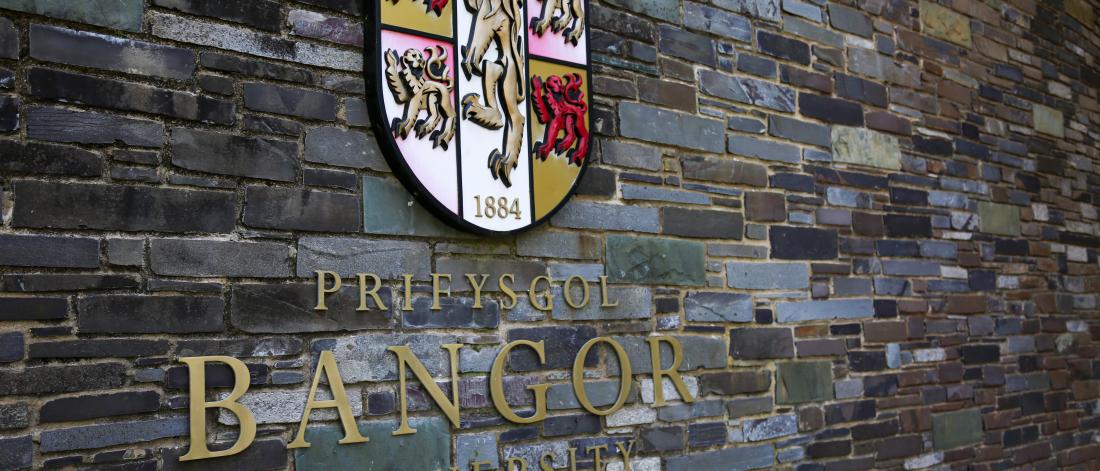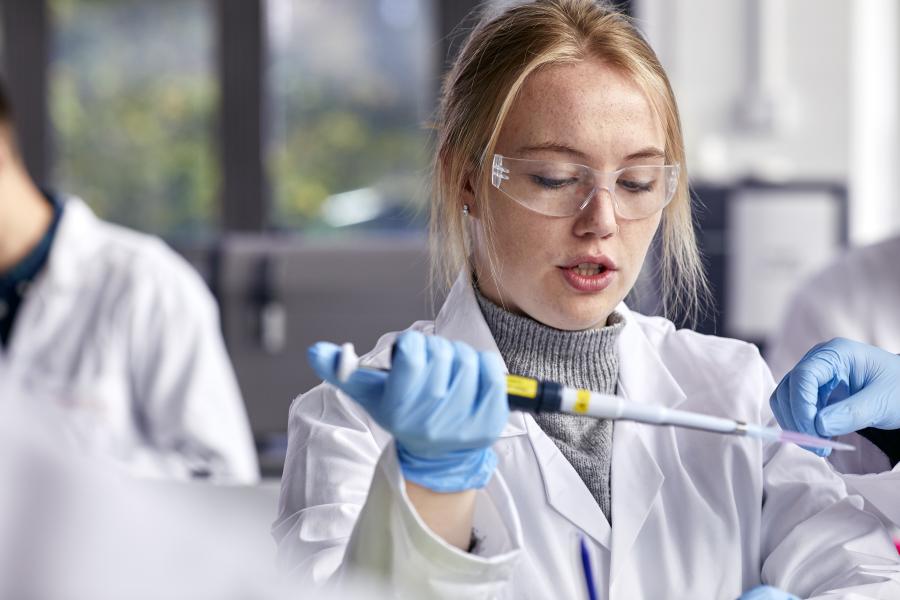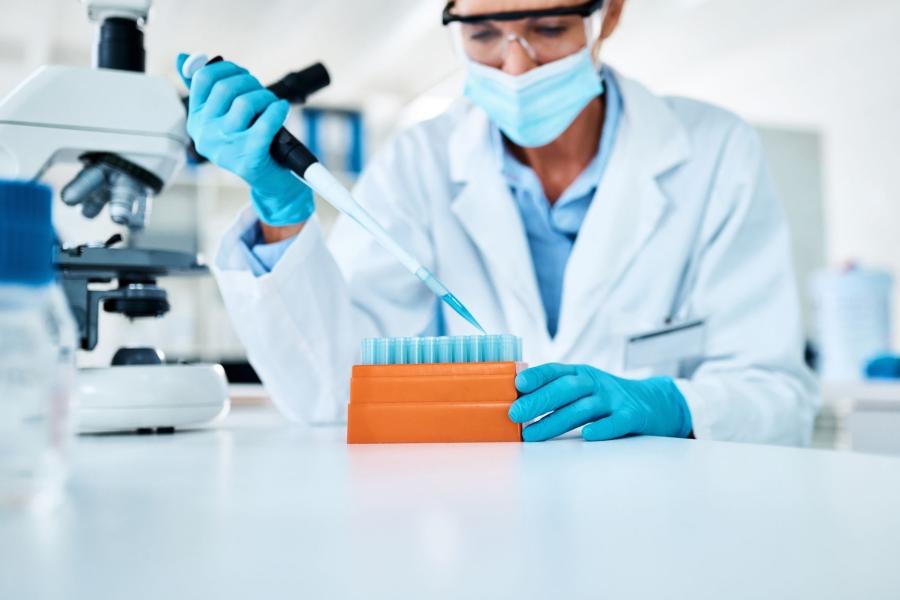5 reasons to study Medicine at Bangor
We appreciate that starting a Medicine programme is a major step for our new students and acknowledge that it is the longest and one of the most demanding academic programmes, so we make sure that pastoral and academic support is accessible to students with a dedicated personal tutor.
- Our learner-centred approach includes small group teaching and learning so you’ll benefit from more contact time with your lecturers.
- The Year 1 curriculum is based on small group teaching, including Case Based learning which links your scientific learning to real-life patient stories and places the patient at the centre of your studies.
Studying medicine in Wales, a bilingual country, helps you to develop valuable communications skills. The ability to feel confident to treat patients whose first language is not your own will equip you to work anywhere in the world, and you will frequently consult with interpreters working across the UK.
- A VR room provides immersive scenario training allowing students to become competent at dealing with clinical problems that occur rarely but require immediate recognition and action.
- Anatomy teaching takes advantage of modern technology, including the ‘Anatomage’ electronic dissecting table, glassless 3D Video screens and mobile apps.
- There are many opportunities during year 2, the Year 3 LIC and across Year 4 and 5 placements to gain experience of remote, rural and mountain medicine in the stunningly beautiful North Wales geographic setting.
- The programme includes a unique Rural Health simulation day ‘in the field’, delivered in partnership with voluntary services including Mountain Rescue, Welsh Ambulance Service, North Wales Fire and Rescue Service, RNLI and specialist University and Health Board staff.
We’re lucky to have a small course size that makes us feel more like a family than a standard degree course. My favourite part of the course so far has been having 1:1 time with my GP tutor to feel confident in my skills and my ability as a medical student. The thing I’m most looking forward to is being able to fully embrace my training and hopefully become the kind of doctor I aspire to be.
Here's a quick overview of our courses so that you can compare and find the right fit for you.
Here's a quick overview of our courses so that you can compare and find the right fit for you.
Course structure
The priority in Year 1 is to provide you with a strong foundation in basic sciences, clinical skills, communication, and professionalism. You will learn the foundations of medical sciences and develop the skills necessary to become competent doctors. The programme also emphasizes early patient exposure to enhance learning and understanding of real-world medical scenarios.
During Year 2, you will engage in various learning activities and experiences, including Community Based Learning and Student Selected Components. One notable highlight of year two is the Rural Health Simulation, which exposes you to the challenges of healthcare delivery in rural settings compared to urban areas. You will practice clinical and communication skills while responding to a simulated emergency alongside doctors and paramedics.
In Year 3 of your course, you will undertake a Longitudinal Integrated Clerkship (LIC). During this clinical placement you will be embedded within a local community and its GP practice for an entire year. This will enable you to follow the full patient journey both in primary and secondary care, observing the impact that medical conditions and the treatment of these conditions have on patients.
In Year 4 of the program, you will focus on increasingly specialist cases and apply the core skills you learned in Year 3 in different clinical settings. The year is divided into multiple learning opportunities, including specialist clinical placements and a Student Selected Component.
Year 5 is designed to integrate and prepare medical students for the Foundation Programme and your future careers as doctors in the National Health Service (NHS) or further postgraduate studies.
Accreditation process
The 2024 commencement date for the North Wales Medical School Medicine programme has been agreed with the GMC. The North Wales Medical School curriculum has been academically validated by the Quality and Validation unit of Bangor University through a process involving external medical educational expertise.
All UK medical schools are regularly reviewed by the General Medical Council (GMC), the professional regulator for Medicine responsible for ensuring high standards for medical education detailed in their document “Promoting excellence: standards for medical education and training”. In addition, all new medical schools are subject to rigorous scrutiny by the GMC.
The North Wales Medical School is progressing through the GMC approval process to award a Primary Medical Qualification. GMC accreditation is only completed when the first intake of students is due to graduate.
To protect students, new medical schools must work with a ‘contingency’ partner, an established medical school able to provide support and willing, if GMC quality standards are not met for any reason, for students to transfer and graduate from the contingency school. The contingency partner school for the North Wales Medical School is Cardiff University School of Medicine.
360 Medicine virtual tour
You may also be interested in these related subject areas.
You may also be interested in these related subject areas.




